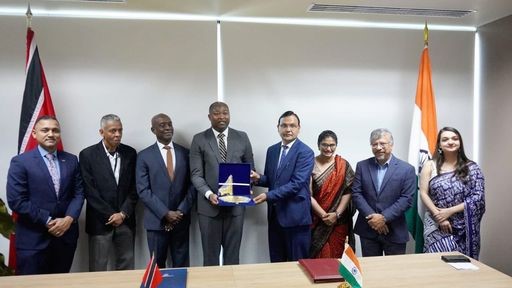(Trinidad Guardian) The National Payments Corporation of India’s (NPCI) International Payments Limited (NIPL) has signed a bilateral agreement with the Ministry of Digital Transformation (MDT) to develop a real-time and efficient payments platform similar to India’s flagship Unified Payments Interface (UPI).
T&T will become the first country in the Caribbean to adopt the UPI platform following the signing, which took place at the MDT in Port-of-Spain last Thursday and was attended by Central Bank Governor Dr Alvin Hilaire and India’s High Commissioner to T&T Dr Pradeep Singh Rajpurohit.
UPI is a payment scheme where online transaction processing, inter-bank settlements and customer disputes are managed holistically. It seeks to enable access to fast payment technology with a greater autonomy and flexibility in handling financial transactions and bank services in T&T.
The agreement offers the Government full and complete ownership of the platform, feasibility into its operations for control and improvement, capacity development in evolving technology and innovative digital payment expertise through sustained skills transfer. The partnership seeks to assist this country in modernising its financial ecosystem.
So far, seven countries, including France, UAE, Singapore, Mauritius, Nepal and Sri Lanka, have adopted the UPI technology, while Peru and Namibia have signed agreements.
According to the Indian High Commission in T&T, the milestone agreement was achieved with a “consistent effort from both sides” during the last year. It started with the visit of Hassel Bacchus, Minister of Digital Transformation, to India in August 2023 and again in January 2024. The NIPL delegations also visited T&T several times during the period.
UPI was launched by Government of India in 2016.
The High Commission said it is expected that citizens, the business community, banks and the Government will benefit from the technology, as the platform helps in minimising dependence on cash, bringing down the cost of payments by the citizens, bringing transparency in the transactions, supporting the financial inclusion of the population, better managing the citizen welfare programmes, helping in better tax compliance, enabling inter-operability among financial institutions, among others and thus paving the way for a cashless society and economic development of the country.






